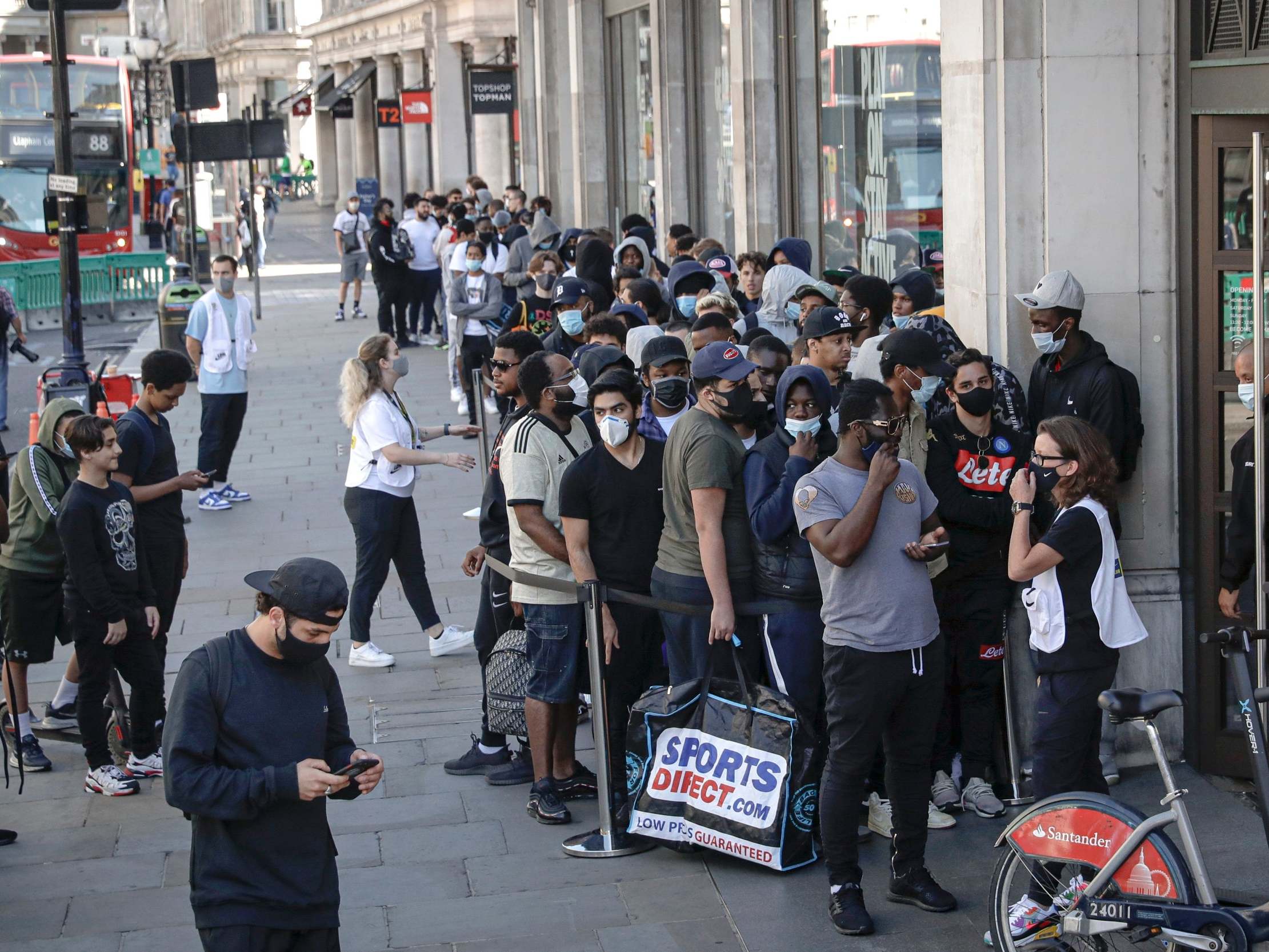Coronavirus queues are giving Britons a lesson in simple economics
The public are being taught about the command economy — where the government, rather than the market, determines what goods should be produced, writes Jagjit Chadha


The British, it seems, still love a queue. In lockdown, as in normal life, there are few pastimes that confirm our notion of civilisation more aptly than the ability to form an orderly, stable line; even one at social distance.
I have in the past few weeks enjoyed this social convention regularly at the pharmacy, off-licence, bakery and butchers. The only hint of tension I have seen is when a pensioner crossed accidently from the queue for the post office to the one for the delicatessen and jumped three places: it was self-corrected without friction. But now standing in line will become the norm for the high street as department stores, clothes shops and jewellers among many other so-called non-essential retailers start to reopen their doors.
Classically a queue forms under scarcity and allows rationing by time rather than price or income. Since the outbreak of Covid-19 we are rationing our access to goods and services in order to minimise the risk of virus transfer. Although the waiting time might seem to be a loss to any person in a queue and in revenues to the shop, as long as this is less than the costs to society of a more rapid rate of re-infection it is time well spent.
Prior to lockdown, the nearest most will have come to a long queue in recent times is either boarding a plane or getting served before a football match starts. But it does not look like we will be forming any of those queues again any time soon. Even if we overlook the benefit to society from social distancing, the time lost in the queue is not all deadweight – as economists would put it – as it can have some value.
After some 11 weeks of lockdown, people are very happy to interact, albeit at distance, and exchange observations and pleasantries. For example, I managed to explain to my daughter what was meant by the T-shirt printed, “Save Ferris”, that a fellow queuer was wearing recently.
The queues remind me of standing in Red Square for the GUM department store in Moscow, although the queues in Russia were more like two centimetres than two metres. As in Communist Russia so in Covid Britain, the queue was almost the objective and the outcome uncertain, as frequently one just did not know what was at the end of the queue.
This raises the question of the relationship between more central planning along with the increasingly top-down management of our affairs, and queuing. There is a trade-off between social benefit and private costs and it looks like the private sector is paying a heavy price to minimise the health costs to society.
Under lockdown we have faced a radical curtailment of our civil liberties with much of the economy switched off and being used as the instrument to contain the spread of the virus. While the furlough scheme supports the employment of labour, it supports neither the deployment nor the retraining of workers.
A planner in a command economy — where the government, rather than the market, determines what goods should be produced — would shift labour and capital from the redundant sectors of hospitality, for example, to the those that are in need such as agriculture or social care. But there does not seem to be any kind of orderly queue forming for work in agriculture, delivery or care homes. Some industries will simply not be able to operate at the levels they did prior to the spread of Covid-19 and we may as well start to accept that and facilitate the re-orientation of the economy.
As we all know, command economies ultimately failed because they cannot convey information in the way the price system can about resource allocation. But we also know that there are many failures in information flows and their processing in market economies.
We still need considerable signalling from the state to guide behaviour, from traffic lights to information about re-infection rates. The state has a first order duty to provide accurate information and interpretation of it to help us make better decisions. Researchers have shown that in response to information about the re-infection rate of an infectious disease, social distancing can spring up without instruction from the state and it can go away again once it is felt the danger has passed. This is what we saw in the UK in early March as people shunned the high street, and again last month when they flocked back to parks and beaches.
What we therefore need is more accurate and timely information at the local level about the rate of re-infection. But because of information lags between getting the disease and knowing about it, the errors and costs of testing, the need to adopt and a precautionary approach to the pathology of Covid-19, and the overall constraint of the provision of health care, the government has a clear role in continuing to design policies that limit the spread of the infection. So queues are here to stay.
The period of growing liberalisation and freedom to travel and trade has characterised my life. But to paraphrase the song, it’s a long, long time from Woodstock to Wuhan. When the state gets involved, we will end up queueing.
Jagjit S Chadha is the Director of the National Institute of Economic and Social Research
Join our commenting forum
Join thought-provoking conversations, follow other Independent readers and see their replies
Comments